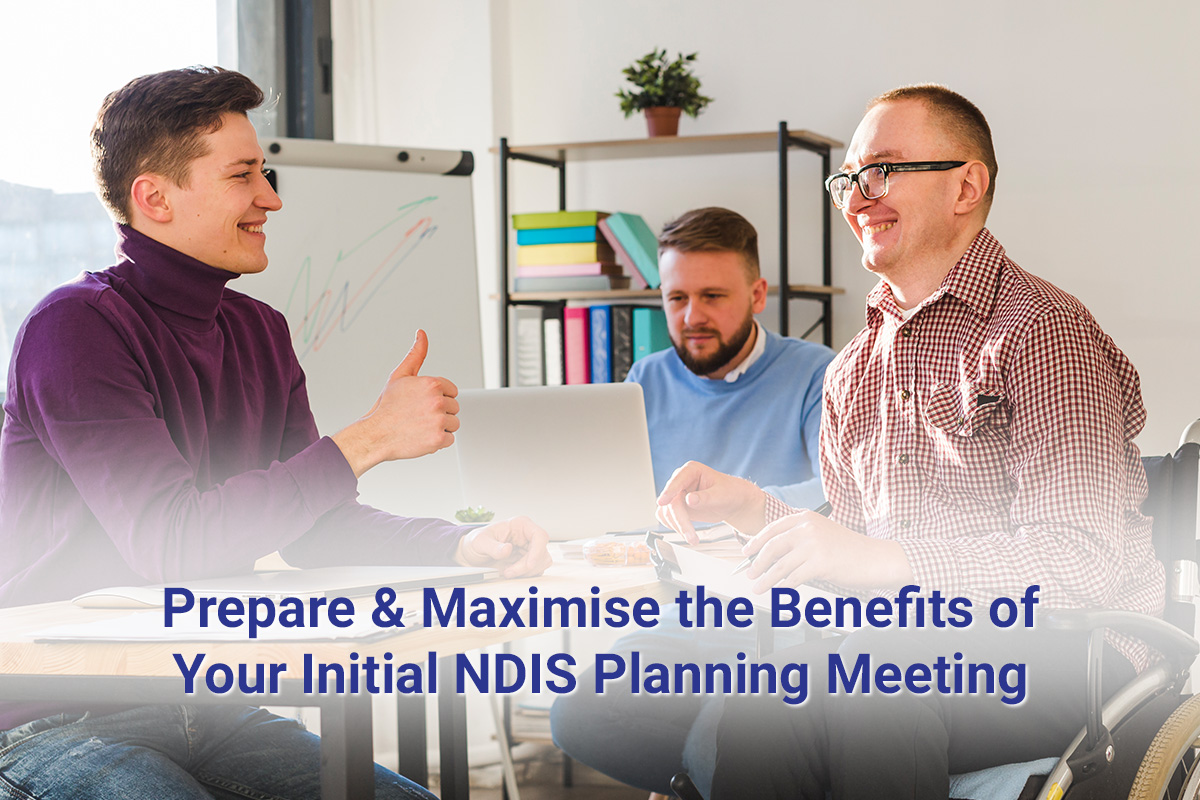
Your National Disability Insurance Scheme (NDIS) planning meeting is a crucial step in securing the support you need to enhance your quality of life. Proper preparation ensures that you can effectively communicate your needs and goals to the NDIS representative.
This blog post offers a comprehensive guide to help you prepare for your NDIS planning meeting, covering essential steps, frequently asked questions, and relevant information with Step-by-Step Guide: How to Prepare for Your NDIS Planning Meeting!
Understand the Process & Know Your Goals
Understand what you want to achieve through the NDIS. Identify your short-term and long-term goals, whether they’re related to living arrangements, education, employment, or social participation. Familiarize yourself with the NDIS process, the purpose of the planning meeting, and the role of the NDIS representative.
List Current Supports & Gather Information
List down the supports and services you’re currently receiving, including healthcare providers, therapies, and assistive devices. Identify your goals, aspirations, and challenges.
Identify Challenges and Needs such as :
- Funding for therapies, exercise programs, and other health-related activities.
- Identify the challenges you face and the specific assistance you require to overcome them. Be honest about your limitations and needs.
- Create a summary of your disability, medical conditions, and functional limitations.
- List daily activities you need assistance with.
- Define short-term and long-term goals for various aspects of your life, such as employment, social participation, education, and independence.
- Rank your goals in order of importance to you.
- Identify which supports will help you achieve your goals.
Gather Important Documents & Information
Gather relevant documents and any existing NDIS-related paperwork. Collect medical reports, assessments, and any other relevant documents that outline your disability and support needs.
Consider following points such as :
- Consider Your Future, Support from Family and Carers:
- Consult your family members, carers, or advocates to gain their insights and ensure you’re not missing any important details.
- Think about your needs in the next 12 months and beyond.
- Consider any changes in your circumstances that may impact your support requirements.
- Research available services and providers that align with your goals.
- Note down questions you may have about specific services.
- Provide details about your income, expenses, and financial situation, which can help determine your eligibility for certain supports.
Prepare Questions
Write down any questions you have about the NDIS process, services, and funding.
Decide whether you want to self-manage, use a plan manager, or let the NDIA (National Disability Insurance Agency) manage your plan funding – ask questions, Create a list of key points you want to discuss during the meeting.
Some Frequently Asked Questions (FAQs) are listed here :
Start gathering information and thinking about your goals well before the meeting. The more prepared you are, the better the outcomes.
Absolutely. You can bring a family member, friend, or advocate who understands your needs and can provide support.
You can request a plan review if your circumstances change. It’s essential to keep your plan updated to match your evolving needs.
The duration can vary, but typically it lasts around one to two hours, but they can be longer if needed.
You have the right to discuss and negotiate the plan. If you’re still not satisfied, you can request a review. You can request changes during your plan’s review period or if your circumstances change significantly.
You’ll receive your plan either through the mail or online, depending on your preference.
Relevant Information to Provide / Quick Checklist
- General Information : Your NDIS Participant Reference Number, Date, time, and location of the planning meeting, Contact information of any advocates or support people attending with you.
- Medical Reports: If applicable, share medical assessments, diagnoses, and reports that provide insight into your condition and needs.
- Therapy and Specialist Reports: Include any assessments or recommendations from therapists or specialists.
- Assistive Devices: List any equipment or assistive devices you currently use or may need.
- Daily Routine: Explain your daily routine, activities, and any challenges you face in performing them.
- Support Network: Outline the people who support you and their roles in your life. List of services and providers you’re already using.
Since you know, what types of supports are funded by the NDIS, whats next?
A well-prepared NDIS planning meeting ensures that you can effectively convey your needs, aspirations, and goals. By following this comprehensive guide, you’ll be equipped to discuss your support requirements, secure the right services, and pave the way for a more fulfilling and empowered future through the NDIS.
Remember, your voice matters, and proper preparation is key to making the most out of your NDIS planning meeting. The NDIS is not just about support; it’s about enabling people with disabilities to thrive. If you want to learn more header over to NDIS Blog.
Read other articles :
- Unlocking Personal Growth: Harness Skills for a Fulfilling Life
- Top Tips for Caring for Elderly Relatives with Disabilities
HCCS is a rergistered NDIS provider. Learn more about our services.
♥ We are available in Brisbane! – Our team is just a call away!
